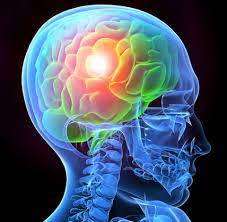Concussion is a type of brain injury caused by a sudden start/stop movement of the head. Your head can’t experience this action without the neck also being subject to the same forces. Plus both the neck and the head produce similar symptoms from this type of injury.

So you can’t assess concussion effectively without properly assessing the neck. Women and children are the most susceptible to concussion.
This is such an important and potentially fatal problem with life altering impacts. We have adopted a world-class, concussion management system from baseline testing through to full return to sport. Read more about it here.
Common Problems
The impact concussion has on the brain can last well past the resolution of symptoms. To know if your brain is at risk of the potentially fatal “second impact syndrome”, cognitive brain tests need to be performed so your post-concussion results can be compared to your baseline. This is truly the only way to know if you are safely recovered due to the wide range in individual differences, standardised population data only gives you a 50% chance of accuracy.
Conversely, “persistent concussion” symptoms can last for days, weeks, months and even years. Brain fog, neck pain, low energy, increased anxiety and depression – these factors can start to severely impact an individual’s ability to study, work and play sport. Accurate assessment of the head and neck is required to identify the cause of persistent concussion and treat the underlying cause. And it is never too late.
Myths about Concussion
1. I didn’t pass out from the knock, so I wasn’t concussed.
You don’t need to be knocked unconscious to be concussed.
2. My symptoms have resolved, so I’m fine.
Obvious symptoms may clear, but unless you can compare your brain function to your own individual baseline, you won’t know for sure at what level your brain is functioning at. Individuals have died after suffering a second concussion before their brain function had recovered to an acceptable level.
You are at risk of serious further brain injury, death or early onset dementia from further knocks before you are recovered adequately.
3. I’ve waited the allocated time (10-14 days). So I’m good to go.
This might be an accepted average time, but the initial recovery for some people can be 21 days. The return to sport should be a carefully monitored and graded process over days, weeks or months.
4. My doctor looked at me and said I’m fine, so I must be fine.
Unless your GP has performed a battery of clinical concussion tests, it is difficult for them to provide you with an accurately informed decision on when it is safe for you to return to sport.
Common Causes
- High impact sports – AFL, ice hockey, gridiron.
- Falls
- Car accidents
Try This
Get a baseline assessment by an expert in this area if you play high-risk sports. This is best done annually as your brain function changes so much.
If you get concussed, seek the management of a specifically trained health professional, like our concussion team as soon as possible.
How We Help
We have adopted the best international practice for concussion management. Read all about it here. Our services include:
- Baseline concussion testing
- Post-concussion assessment of the neck and brain
- Return to school, training and playing advice and monitoring
- Treatment of persistent concussion issues

